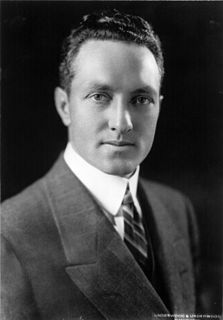A Quote by Saul David
Winter horseshoes are equipped with little spikes that give a horse traction on snow and ice and prevent it from slipping.
Related Quotes
When death comes, it's just like winter. We don't say, "There ought not to be winter." That the winter season, when the leaves fall and the snow comes, is some kind of defeat, something which we should hold out against. No. Winter is part of the natural course of events. No winter, no summer. No cold, no heat.
Pale as ice you passed me by; I wondered what you really felt, And waited through the changing times, To see if you would one day melt. I thought that ice would melt with warmth, But there were thing I did not know: The sun can touch the outer layers But does not reach the deepest snow. Winter sometimes seems like years, Summer's sometimes far away, But winter always turns to summer, As surely as does night to day.
Sure, the first light snowfall may be a chance to dance giddily, leaving squeaky footprints through the neighborhood, marking the runner's right to the domain. But later drubbings of snow merely complicate running. Snow turns to ice, to slush, to ice again. Tire ruts twist ankles. New snow hides the hazards.
Horseshoes are lucky. Horses have four bits of lucky nailed to their feet. They should be the luckiest animals in the world. They should rule the country. They should win all their horse races, at least. 'In the fifth race today, every single horse was first equal...one horse threw a shoe came in third...the duck was ninth...and five ran.'
In London the day after Christmas (Boxing Day), it began to snow: my first snow in England. For five years, I had been tactfully asking, 'Do you ever have snow at all?' as I steeled myself to the six months of wet, tepid gray that make up an English winter. 'Ooo, I do remember snow,' was the usual reply, 'when I were a lad.'
Is the divine presence a Republican? Or is He/She/It running an inter-galactic fossil fuel conglomerate?...whatever the explanation may be, the Paraclete appears to be as determined as any terrestrial corporate frontman to prevent a successful conclusion to the climate talks. How I know? Because every time anyone gets together to try to prevent global climate breakdown, He swaths the rich, densely habited parts of the world with snow and ice, while leaving obscurer places to cook.
Books of natural history make the most cheerful winter reading. I read in Audubon with a thrill of delight, when the snow covers the ground, of the magnolia, and the Florida keys, and their warm sea breezes; of the fence-rail, and the cotton-tree, and the migrations of the rice-bird; of the breaking up of winter in Labrador, and the melting of the snow on the forks of the Missouri; and owe an accession of health to these reminiscences of luxuriant nature.
One must have a mind of winter to regard the frost and the boughs of the pine trees, crusted with snow, And have been cold a long time, to behold the junipers, shagged with ice, the spruces, rough in the distant glitter of the January sun, and not to think of any misery in the sound of the wind, in the sound of a few leaves, which is the sound of the land, full of the same wind, blowing in the same bare place for the listener, who listens in the snow, and, nothing herself, beholds nothing that is not there, and the nothing that is.







































